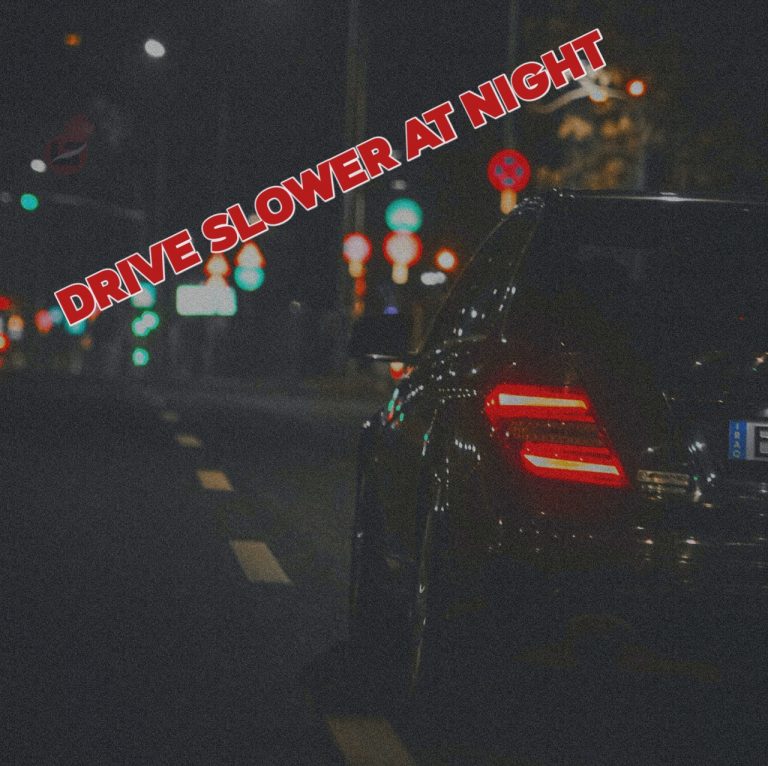Driving slower at night could save you from many casualties, unlike daytime driving which gives you complete visibility of the road and your environment.
While accidents aren’t 100% avoidable in broad daylight, reports from the National Highway Traffic Safety Administration show that accidents have more chance of happening at night than in the daytime due to poor visibility that can be resolved most times by the headlights.
The ability to avert accidents and take caution of other road hazards are some of the advantages of driving slower at night.
In this article, I’ll explain why you need to drive slower at night and the extra precautions you can employ to stay safe.
Why Should You Drive Slower at Night?
Driving slowly at night gives you complete control of the wheel if there’s any case that requires immediate braking or
Driving slowly at night gives you complete control of the wheel if any case requires immediate braking.
For instance, Some animals or humans who ply the road at night might cross the street without prior notice of your coming.
If you’re driving slowly, it’ll help you quickly detect such obstacles and manoeuvre them if possible but driving at increased speed will increase your braking distance.
Hitting animals or humans crossing the highway will also result in losing control of the wheel resulting in accidents.
Also, driving slowly on a rainy day reduces the chance of hydroplaning; this is a scenario where you speed on a surface with reduced friction and visibility.
It’s often hard to apply brakes in these scenarios, so driving slowly at night is advised.
In summary, driving slowly at night helps you maintain focus and decrease your braking distance by allowing you to detect objects in front faster.
6 Tips for Driving Safely at Night
Aside from driving slowly at night, other extra precautions are required to drive safely at night; here are some:
1. Switch off the Interior Bulbs
Interior bulbs/lights and the dashboard light should be switched off or reduced to avoid interference on the windshield.
Lights on these spots will further decrease your visibility at night, but turning them off will help you see the road correctly and avoid any hazards.
2. Turn on the Headlights
If you’re a night driver, you must ensure that your headlights are always in perfect condition and clear.
Highway codes require that you keep your headlights turned on, significantly when visibility is impaired, to help you see up to 100M ahead.
3. Drive Slowly
As we’ve discussed earlier, driving slowly at night helps you focus and give you 100% control of your wheel.
Avoid driving at increased speed at night to avoid increasing your braking distance and making you more prone to accidents and casualties.
4. Always check your mirrors
While you might be driving slowly in your lane, other high-spirited drivers don’t obey these rules and could impact you.
Endeavor to always check your mirrors to notice and avoid them on time. You could also reduce the effect of the brightness from the cars behind your rearview mirror.
5. Look Ahead of You
Your focus is needed the most when driving at night compared to the daytime; you must keep your head straight and avoid distraction.
This will help you easily bypass diffraction from other car users and animal eyes.
6. Take Precautions
It’s advised to take caution ahead; if you start feeling tired or sleepy, you can have someone take control of the wheel or find a place to cool off.
You could also take a walk, eat out, and ensure you feel alive, relaxed, and focused before hitting the road again.
FAQs
Conclusion
If you are looking for reasons to drive slower at night, this article has done justice to it.
Reports also show that it’s more dangerous to drive at night than during the day due to the hazards attached.
You can, however, take the precautions highlighted above for a better night’s driving.
As an Amazon Service LLC Program Associate, V. Auto Basics earns from qualifying purchases. See Our Affiliate disclaimer.
